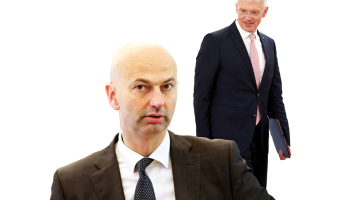
Foto: Jānis Saliņš, F64
No it will not - the headline was just a shameful trick to make you start reading. But it seems that many think that high inflation will result from euro introduction. This makes me raise two questions:
1) What does history tell us?
2) How to avoid potential price increases?
I have looked at the eleven founding members of the Eurozone, EZ-11 (Austria, Belgium, Finland, France, Germany, Ireland, Italy, Luxembourg, Netherlands, Portugal, Spain) from 1997 to 2002, i.e. from two years before the formation of the Eurozone until three years after.
Figure 1 shows inflation development in EZ-11. Inflation indeed rose after the introduction of the euro but from a very low level of around 1% to a still low level of around 3% per year.
Figure 1: Annual inflation in EZ-11 (the eleven original countries of the Eurozone), 1997 - 2002. The red line indicates the inception date of the euro














